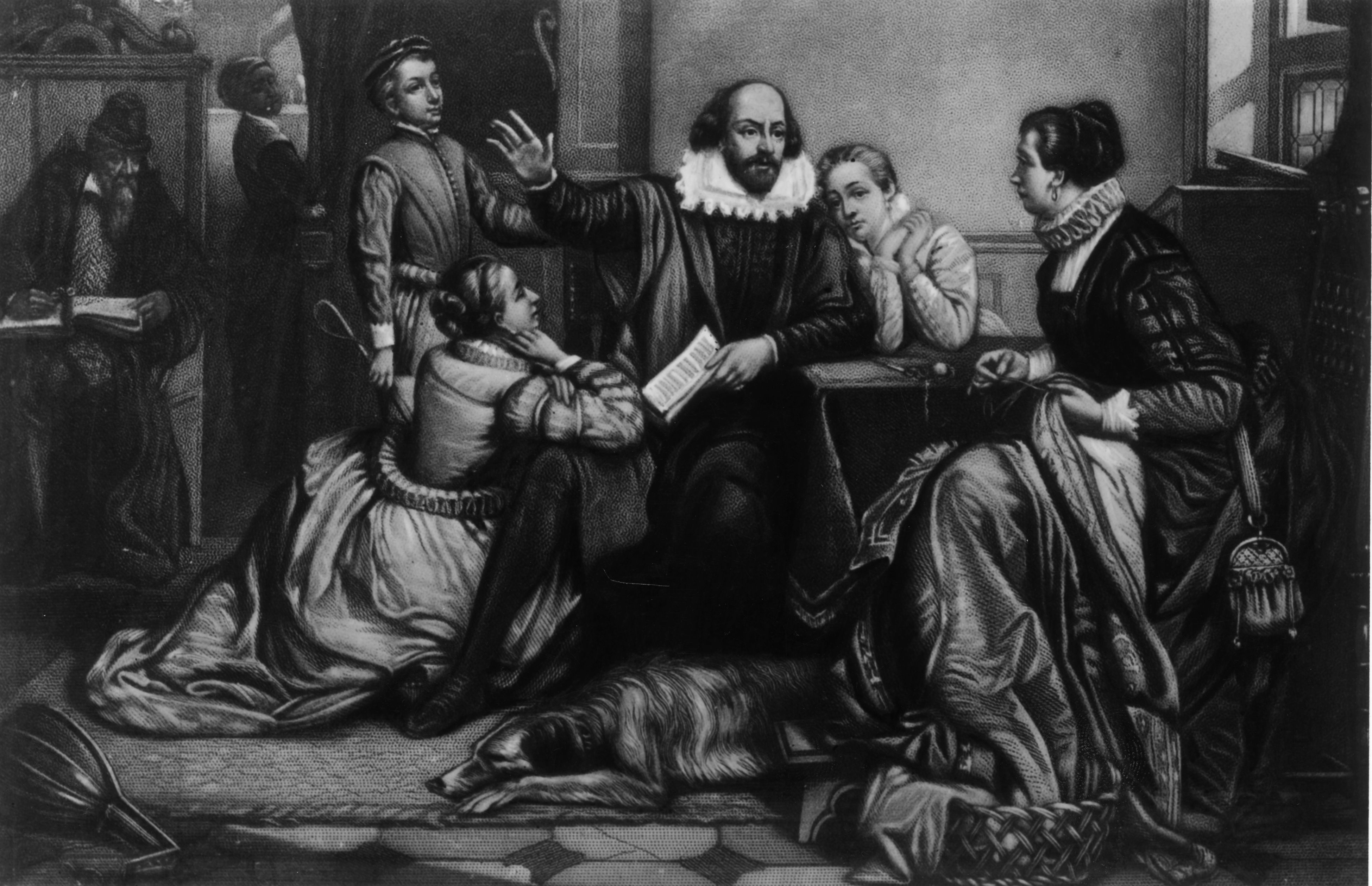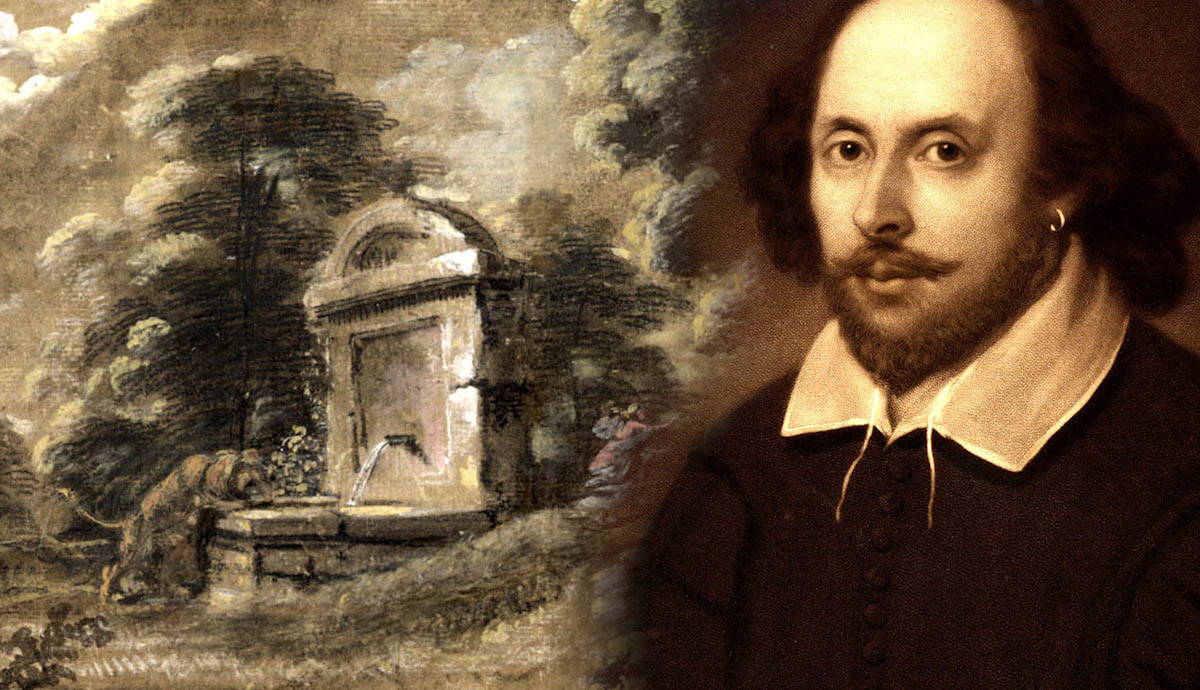The Life and Legacy of William Shakespeare
William Shakespeare, often referred to simply as Shakespeare, is widely regarded as one of the greatest playwrights and poets in the English language and one of the most influential figures in world literature. Born in Stratford-upon-Avon, England, in April 1564 (exact date uncertain), Shakespeare's works conti nue to be studied, performed, and celebrated around the globe, centuries after his death.
Shakespeare's life is shrouded in mystery and speculation, with limited documentation available. He was the third of eight children born to John Shakespeare, a successful glove-maker and local politician, and Mary Arden, the daughter of a prosperous landowning family. Despite the lack of formal education beyond grammar school, Shakespeare's early exposure to literature and drama in the bustling market town of Stratford likely sparked his interest in storytelling and the stage.
In 1582, at the age of 18, Shakespeare married Anne Hathaway, who was eight years his senior and pregnant with their first child, Susanna. The couple went on to have twins, Hamnet and Judith, born in 1585. Little is known about Shakespeare's life during the so-called "lost years" from 1585 to 1592, during which time he likely worked as an actor and playwright in London.
By the early 1590s, Shakespeare had established himself as a playwright and actor in London's burgeoning theater scene. He became a member of the Lord Chamberlain's Men, one of the most popular theater companies of the time, which later became the King's Men under the patronage of King James I. Shakespeare's early plays, including "Henry VI," "Richard III," and "The Comedy of Errors," were influenced by the works of classical writers such as Plautus and Seneca, as well as contemporary playwrights like Christopher Marlowe. Shakespeare's career as a playwright flourished during the Elizabethan and Jacobean eras, spanning from the late 16th century to the early 17th century. He wrote a diverse range of plays encompassing history, tragedy, comedy, and romance, often exploring universal themes such as love, jealousy, power, ambition, and the complexities of the human condition. His works are known for their rich language, complex characters, and profound insights into human nature.
Shakespeare's career as a playwright flourished during the Elizabethan and Jacobean eras, spanning from the late 16th century to the early 17th century. He wrote a diverse range of plays encompassing history, tragedy, comedy, and romance, often exploring universal themes such as love, jealousy, power, ambition, and the complexities of the human condition. His works are known for their rich language, complex characters, and profound insights into human nature. Some of Shakespeare's most famous plays include:
Some of Shakespeare's most famous plays include:
- "Romeo and Juliet" (1597) - A tragic love story of two young star-crossed lovers from feuding families in Verona.
- "Hamlet" (c. 1600) - A revenge tragedy about the Danish prince Hamlet, who seeks to avenge his father's murder.
- "Macbeth" (c. 1606) - A dark and bloody tragedy about ambition, power, and the corrupting influence of unchecked ambition.
- "Othello" (c. 1603) - A tragedy about jealousy, manipulation, and the destructive power of suspicion, set against the backdrop of Venetian society.
- "King Lear" (c. 1605) - A tragic exploration of aging, family, and madness, centered around the titular king's descent into madness and despair.
- "A Midsummer Night's Dream" (c. 1595) - A romantic comedy set in a magical forest, featuring a cast of fairies, lovers, and amateur actors.
- "The Tempest" (c. 1610) - A fantastical romance about betrayal, forgiveness, and the power of reconciliation, set on a remote island inhabited by the sorcerer Prospero.
In addition to his plays, Shakespeare wrote numerous sonnets, which are among the most celebrated in English literature. His 154 sonnets explore themes of love, beauty, time, mortality, and the poet's relationship with his muse.
Shakespeare's legacy extends far beyond his literary achievements. His works have been translated into every major language and adapted into countless stage productions, films, operas, ballets, and other artistic forms. His influence can be seen in literature, theater, music, and popular culture around the world. Despite his enduring fame, much about Shakespeare's life remains speculative and open to interpretation. The authorship of his works, the chronology of his plays, and the details of his personal life continue to be subjects of scholarly debate and inquiry.
Despite his enduring fame, much about Shakespeare's life remains speculative and open to interpretation. The authorship of his works, the chronology of his plays, and the details of his personal life continue to be subjects of scholarly debate and inquiry.
Despite the enduring popularity of his plays and sonnets, William Shakespeare remains a figure of mystery and intrigue. One of the most debated aspects of his life is the authorship question surrounding his works. Some skeptics have questioned whether Shakespeare, a relatively modestly educated man from a provincial town, could have possessed the literary skill and cultural knowledge reflected in his plays.
Alternative theories suggest that Shakespeare's works were actually written by someone else, such as Francis Bacon, Christopher Marlowe, or Edward de Vere, the Earl of Oxford. However, the overwhelming majority of scholars and experts in the field of Shakespearean studies reject these theories, citing historical evidence, linguistic analysis, and the lack of credible alternative candidates. The enduring appeal of Shakespeare's works lies in their universality and timeless relevance. Despite being set in specific historical periods or locales, his plays and poems speak to fundamental aspects of the human experience that transcend time and place. Themes such as love, betrayal, ambition, jealousy, and the search for meaning resonate with audiences of all ages and backgrounds.
The enduring appeal of Shakespeare's works lies in their universality and timeless relevance. Despite being set in specific historical periods or locales, his plays and poems speak to fundamental aspects of the human experience that transcend time and place. Themes such as love, betrayal, ambition, jealousy, and the search for meaning resonate with audiences of all ages and backgrounds.
Shakespeare's characters are equally compelling, ranging from tragic heroes and heroines to comic fools and villains. They possess depth, complexity, and psychological realism that make them feel like living, breathing individuals. Whether it's the tormented Prince Hamlet, the ambitious Macbeth, or the witty and resourceful Beatrice from "Much Ado About Nothing," Shakespeare's characters continue to captivate and intrigue audiences with their complexity and humanity.
In addition to his literary achievements, Shakespeare played a significant role in shaping the English language. He is credited with coining numerous words and phrases that have since become commonplace in the English lexicon. From "bedazzled" and "eyeball" to "swagger" and "lackluster," Shakespeare's linguistic inventiveness has left an indelible mark on the English language, enriching it with vivid imagery, wordplay, and wit.
Shakespeare's influence extends far beyond the realm of literature and language. His works have inspired countless adaptations, reinterpretations, and homages in various art forms, including theater, film, television, opera, ballet, and music. From classic stage productions to modern retellings set in contemporary contexts, Shakespeare's plays continue to be reimagined and reinterpreted by artists and audiences around the world. Moreover, Shakespeare's impact on popular culture is immense, with references to his works appearing in everything from advertisements and political speeches to comic books and video games. His plays and characters have become iconic cultural touchstones, recognized and appreciated by people from all walks of life.
Moreover, Shakespeare's impact on popular culture is immense, with references to his works appearing in everything from advertisements and political speeches to comic books and video games. His plays and characters have become iconic cultural touchstones, recognized and appreciated by people from all walks of life.
In recent years, there has been a renewed interest in Shakespeare's works and legacy, driven by innovative adaptations, digital technologies, and interdisciplinary scholarship. Projects such as the "Shakespeare's Globe" theater in London, which aims to recreate the experience of Elizabethan theater, and the "Shakespeare First Folio" digital archive, which provides access to high-resolution images of the original texts, highlight the ongoing relevance and significance of Shakespeare's cultural legacy in the 21st century.
In conclusion, William Shakespeare's enduring legacy as one of the greatest playwrights and poets in the English language is a testament to the power of his words, characters, and ideas. From his humble beginnings in Stratford-upon-Avon to his lasting impact on literature, language, and culture, Shakespeare's influence continues to be felt and celebrated around the world, ensuring that his works will be cherished and studied for generations to come.





























